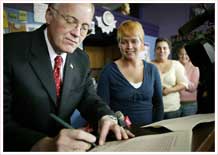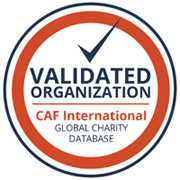Spectrum’s Diversity Commitment
Youth and adults of all social and cultural identities; including race, religion, ethnicity, class, sexual orientation, gender, gender expression, age, country of origin, immigration status, and mobility; should be treated with respect, dignity, and equity.
Spectrum Youth and Family Services is committed to creating and maintaining an environment and community that:
- is free from racism, sexism, homophobia, transphobia, and all forms of injustice and inequity;
- is free from the weight of hate, discrimination, and fear;
- is uncompromised in physical and emotional safety; and
- fosters and practices civil and respectful dialogue.
Diversity:
- We strive to reflect the communities we serve.
- We are intentional in our efforts to attract and retain diverse employees, and to include such social and cultural identities as race, ethnicity, gender, gender identity and expression, age, sexual orientation, religion, disability, socioeconomic status, background, and lived experience in recruitment and hiring.
Inclusion:
- We commit to providing accessible services to populations and people of all social and cultural identities.
- We commit to creating an inclusive, affirming, just, and culturally competent* work environment.
- We commit to cultivating an atmosphere of respect and support.
Equity:
- We commit to working as allies with our community to co-create services that are more responsive to our community’s needs.
- We commit to counteract injustices by increasing access to services for anyone experiencing oppression.**
* Culturally Competent: We work together as an organization to adapt to an ever-changing community population that is composed of a variety of personal and cultural identities, in order to provide effective culturally responsive services.
** Oppression: How society, history, beliefs, culture, government, laws, behaviors, and institutions work together to create a hierarchy in which there are dominant groups that receive privileges and power based on their race, gender, ethnicity, sexuality, identity, and beliefs, and minority groups that are severely disadvantaged and oppressed by society, resulting in strong inequalities. Only the dominant group can be oppressive because the dominant group has the power. (Definition adapted by Spectrum Youth & Family Services from Open Source Leadership Strategies)
For Spectrum Youth & Family Services this means that:
- Cultural competency is an ongoing process of learning about all social and cultural identities. We commit to adapting our organization as we learn in order to improve services for all individuals.
- We are creating a culturally responsive, knowledgeable, and self-aware work environment that effectively communicates across cultures by implementing trainings, workshops, and seminars; creating educational resources; and having informal gatherings to foster self-awareness and discuss topics surrounding prejudice, racism, equity, and cultural beliefs.
- We continually reassess our progress.
- We have leaders in the organization who reflect the communities we serve.
- We support employees in their cultural competency work.
- Our strategic plan includes a timeline and a budget for diversity, inclusion, equity initiatives.
Land Acknowledgment
“Askwa N’Daoldibna Iodali ” (ah SKWAH (en) dah ohl DEE beh nah YOH dah lee) is an Abenaki saying that means “we are still here”. As Spectrum serves families and children across the state, it is essential to honor the first families and children that lived, and continue to live, here.
This is the historic homeland of the Abenaki people. Their presence began before colonial rule and continues despite it. Our understanding of their lives must be broader than white supremacy and colonial interference. Vermont’s Indigenous People continue to celebrate their cultures, advocate for themselves, and encourage all of us to reflect on the history of this land.
We invite you to reconnect with the land that you call home, to think about what it means to you, to generations past and present, and to appreciate everything it gives you. We also invite you to consider how you can work collectively and individually to protect and support not only this land but also Indigenous People and their fight for the visibility and justice that they have long been denied.
They are still here and will continue to be here. Askwa n’daodibna iodali.
You can find a recording of how to pronounce askwa n’daodibna iodali here.
This land acknowledgement was crafted with feedback and help from two Abenaki Vermonters: Melody Brook and Rich Holshuch.














